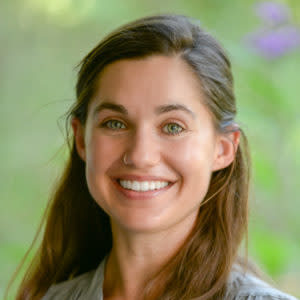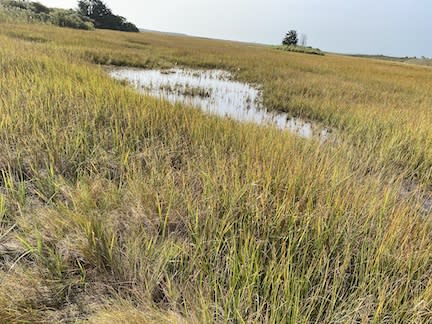October 2021 Webinar - Salt marsh adaptive management to sea level rise using runnels
Thursday, October 21, 2021 (1:00 PM - 2:00 PM) (EDT)
Description
Monthly webinars are offered as a benefit of membership. Once each quarter, in March, July, September and December, the monthly SWS webinar is open for non-members to attend (and at no cost), as well.
Buying time — Salt marsh adaptive management to sea level rise using runnels
Salt marshes across the Northeast and Mid-Atlantic are experiencing rapid expansion of interior shallow water areas, which are "eating" marshes from the inside out. These changes are driven by sea level rise in interaction with legacy effects from human modifications in marshes. An emerging adaptation technique, runnels, which resource managers have piloted in the Northeast, attempts to slow the advance through hydrologic modification. Runnels are small channels created to restore tidal hydrology, drain impounded water, and promote revegetation. By simulating the natural "pool recovery" process, managers hope to slow or halt pool expansion, and even facilitate marsh migration. Over a decade of incremental application by restoration practitioners has shown promising outcomes, but controlled experimental studies and quantitative assessments are limited. My research team recently initiated an experiment to test fundamental questions on mechanism, generality, and effectiveness of runnels across a 65,000 m2 study area. In this talk, I will review the problem of shallow water expansion, the history and theory of runnels as used in tidal marsh adaptation, and describe our large-scale experiment which is the first controlled study of runnels conducted at this scale. I will also present some preliminary results from our experiment. Rapid salt marsh loss is a "wicked problem"; runnels may offer an opportunity to buy salt marshes time while coastal communities adapt. Presenter: Alice Besterman, PhD
Presenter: Alice Besterman, PhD
Dr. Alice Besterman is a Postdoctoral Research co-appointed with the Buzzards Bay Coalition and Woodwell Climate Research Center, and a Postdoctoral Fellow with the Northeast Climate Adaptation Science Center. She received her bachelor's degree from Virginia Commonwealth University in Environmental Studies and her PhD from University of Virginia in Environmental Science. Besterman is a coastal ecologist studying changes including sea level rise and invasive species, and their effects on ecosystems of conservation interest. Besterman's PhD research assessed the distribution and effects of an invasive seaweed on intertidal mudflat communities along the Virginia coast. Her postdoctoral work is focused on northeastern tidal marsh vulnerability and climate adaptation. Along with project partners based at NGOs, state and federal agencies, and academic institutions, Besterman is focused on urgent and actionable science that will be used in coastal adaptation.

Image of a shallow water area in the upper zone of a salt marsh in the Buzzards Bay Estuary, Massachusetts.
Watch the recording by logging into the member hub.
33
